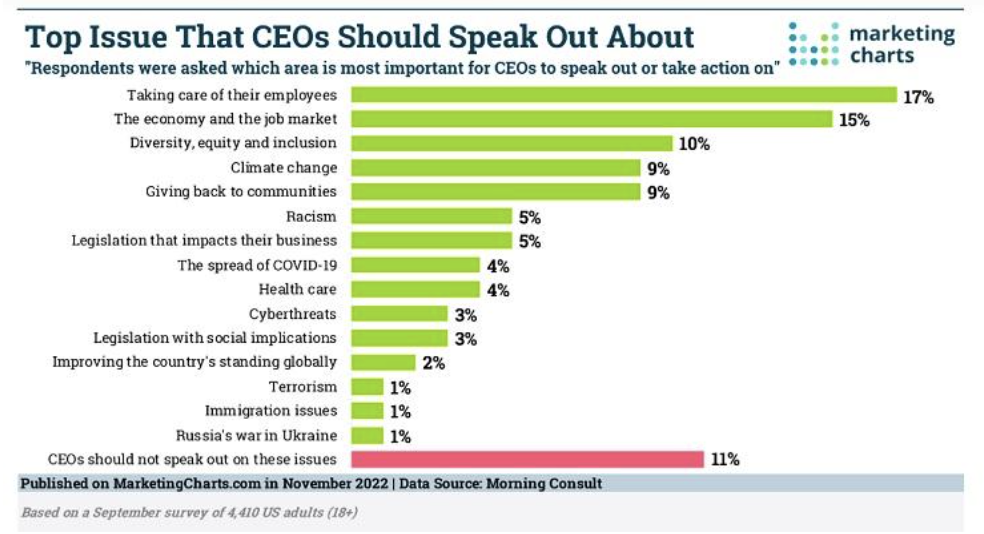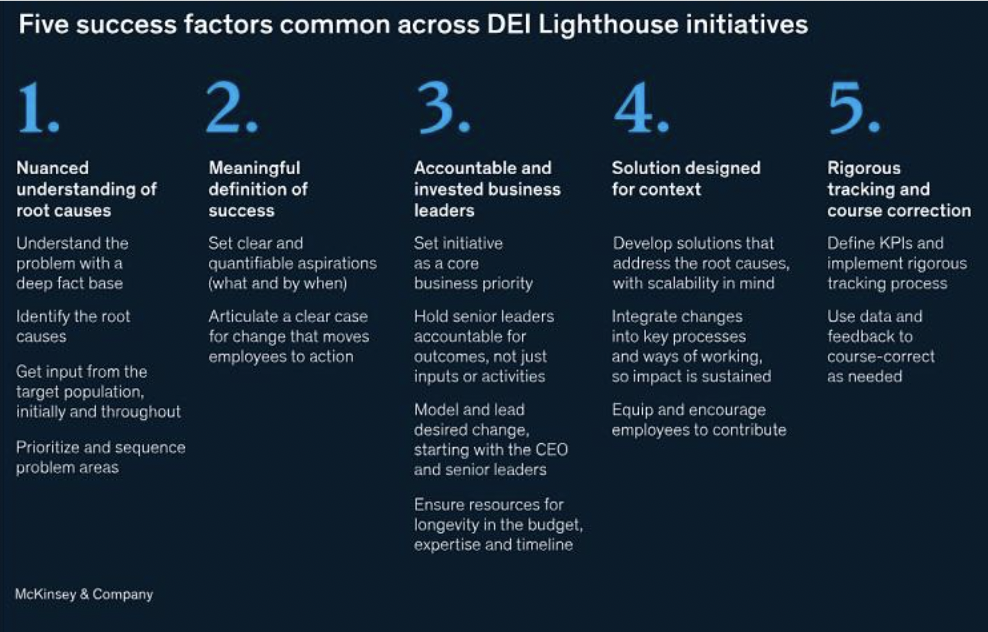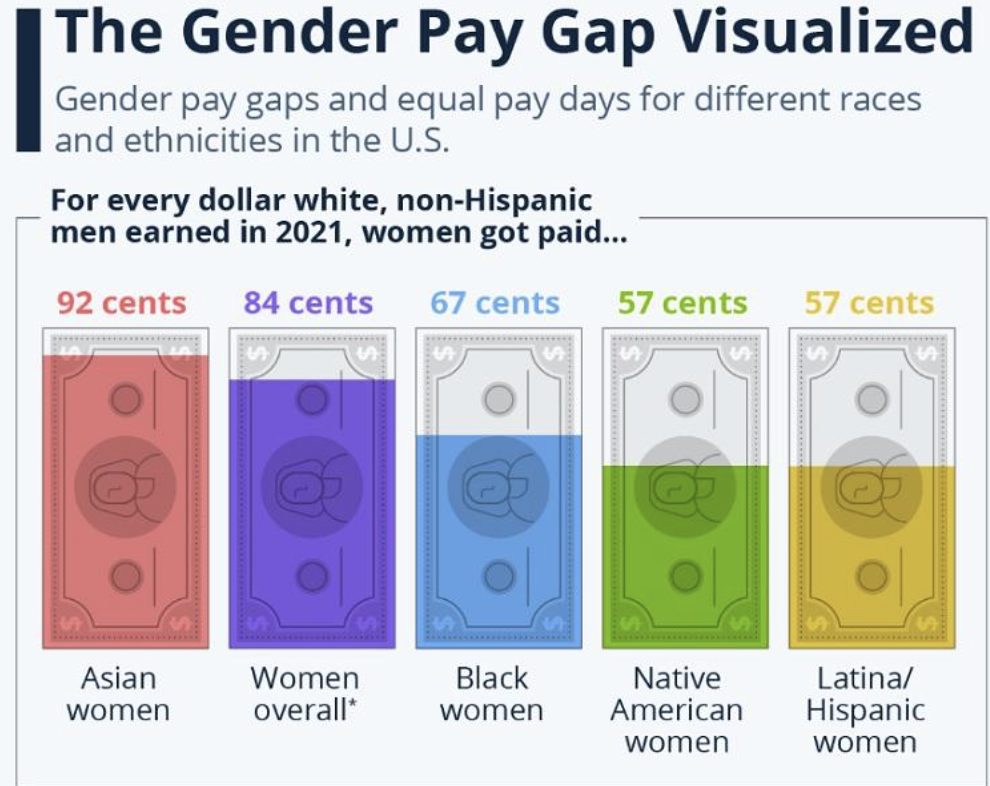DEI Trends 2024: Diversity and Inclusion in Hiring Practices

DEI Trends 2024: Diversity and Inclusion in Hiring Practices
As new generations enter the workforce, they treat equity as an expectation rather than something nice to have. Here are the top diversity and inclusion trends for 2024.
Since the COVID-19 pandemic, companies have struggled to find and retain top talent. The job market constantly changes, so businesses must adapt and embrace current trends to remain competitive. Diversity, equity and inclusion (DEI) have been on the agenda for the last few years.
Many job listings include information on company policies on DEI. What are some of the trends coming up for 2024?
Connect with DEI-minded recruitment agencies on The Manifest to ensure your company is being inclusive and equitable in its hiring practices.
1. People Want to Hear About DEI From Brands
While owners should embrace a diverse workplace for the benefits it brings, doing so attracts like-minded customers. In a survey conducted by MarketingCharts, 10% of respondents stated they cared most about DEI.

Source: Marketing Charts
Paying attention to company values increases customer loyalty. Since brands should be inclusive anyway, the added exposure is a marketing perk.
2. DEI Attracts Top Talent
People are more aware of the importance of an inclusive work environment. With a focus on DEI hiring practices, businesses bring in employees with diverse backgrounds. Because people have different life experiences, adding various cultures, religions, and lifestyles adds depth to brainstorming sessions.
Top talent may look for a brand that embraces diversity. Make it clear the enterprise does not hire based on gender, orientation, or race. Choose candidates based on what they bring to the table and the unique value each adds to the team. People want to work for an organization where they can put their skills to use.
3. DEI Improves Mentorship and Collaboration
Another trend many companies embrace is appointing a more established worker to mentor new hires. Rather than matching like-minded people, encourage those from different backgrounds to work together and get to know one another professionally.
One organization utilizing mentorship is Danaher. They instituted an LGBTQ+ Friends Associate Resource Group, which helps leaders and team members better understand issues their LGBTQ+ co-workers face and how to interact respectfully.
4. Improved DEI Helps Leaders Understand Root Causes of Conflict
McKinsey conducted an in-depth report on DEI-related efforts and found some steps that lead to higher success rates for businesses trying to effect change.

Source: McKinsey
One of the first points is to understand the root causes of a problem by reaching out to the target population and getting to know employees. Other steps included defining what needs to change, keeping leaders accountable, designing solutions that make sense for the enterprise now and in the future, tracking results, and correcting methods.
5. Diversity Creates Inclusive Onboarding
Many companies turn to the onboarding they have used since the first day the doors opened. Organizations change as decades pass and workers’ priorities shift. What worked for training in 1990 may fall flat in 2024.
Take the time to recreate onboarding with a special eye toward creating opportunities for inclusion. Educate new employees about company culture and expectations for how to handle diversity.
Make sure every new hire feels seen, heard, and comfortable. Human resources hired them because they brought value to the brand. Stress how crucial their input is to the team.
6. DEI Improves Corporate Culture
Take the time to look at the business's core values. Everyone deserves a safe workplace where they do not have to worry about being bullied.
Consider the needs of every worker. For example, what do breastfeeding moms need? Are LGBTQ+ employees feeling included? Is racial diversity and appreciation a priority?
Offer training to ensure employees better understand one another—host team-building retreats to foster better co-worker interactions.
Leadership should ask for feedback from all employees. Find out what areas they feel are lacking, and create programs to fix any issues due to cultural, racial, or life differences.
7. DEI Encourages the Same Pay for the Same Work
Even though employers have made strides to close the pay gap in recent years, reports still show a difference in what women are paid versus their male counterparts.

Source: Statista
In a separate report, Statista found a mere tenth of a percent raise between 2021 and 2023.
All women combined make 84 cents on the dollar compared to all races of men. Asian women make around 92 cents on the dollar, Black women 67 cents, and Latina and Native American women make 57 cents compared to men’s 100 cents.
To fully embrace DEI, offer the same pay no matter who is hired. Their race, gender, and other factors should not matter. Each role has a task and specific required skills. The job description should include the rate, and companies should abide by it no matter who they hire.
8. DEI Helps Companies Avoid Discrimination
An inclusive workplace does not discriminate against people unless their beliefs are so vile that others are harmed. One area a lot of enterprises want to avoid dealing with is political and religious bias. However, not accepting others’ beliefs can lead to a tense workplace and some people feeling targeted.
One thing managers can do is set a no-politics rule at work. People should not outright or subtly share their opinions about politics or candidates. If the company chooses to donate to a political party, expect around half of workers to feel uncomfortable.
Organizations in the United States may have workers from various religious backgrounds working side by side—train staff to respect others’ beliefs. If one person needs to say a silent prayer before eating lunch, give them the time and space to do so. If another has to attend services at a particular time on certain days, offer the leeway to practice their religion.
It is easy to feel others’ traditions are silly or a nuisance. Adopt a policy that shows you respect workers’ beliefs, and employees will also follow and respect one another.
Where Will DEI Head in 2024?
Companies can look forward to having a team complete with various genders, races, and backgrounds for flexibility. The more viewpoints one incorporates, the more fresh ideas emerge. Incorporate everyone’s strengths and watch the brand grow in revenue and standing.